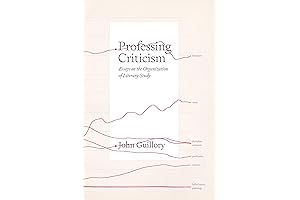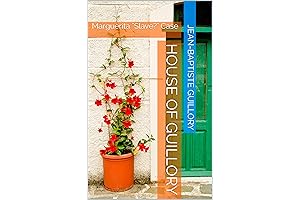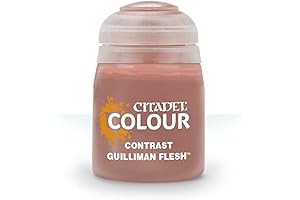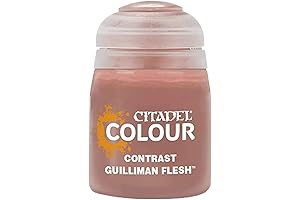· literary criticism · 8 min read
Professing Criticism: The Best Critical Essays for a Deeper Understanding of Literature
A comprehensive guide to the most significant critical essays on literature, 'Professing Criticism' offers a deeper understanding of literary study.
Welcome to our in-depth exploration of 'Professing Criticism,' a seminal work that delves into the intricacies of literary criticism. This guide will provide you with a comprehensive overview of the book's key concepts, helping you gain a deeper appreciation for the field of literary studies.
Overview

PROS
- Complete and complex demonstration of essays.
- Characterized by intellectual elegance.
CONS
- Might be complex for beginners.
- Occasional jargon could be off-putting if readers are not very familiar with the jargon.
Professing Criticism: Essays on the Organization of Literary Study is a collection of essays by various authors in honor of Jonathan Culler, a notable literary theorist. These essays are complex, rich, and comprehensively engage with theory. Culler's stature and body of work gather an impressive range of essays whose coherence as a collection is a testament to his stature. For both fans of Culler and those unfamiliar with him, the essays are sophisticated and compelling.
Each of the essays featured bring their own complexity adding to the overall depth of this publication. The essays touch on a wide range of interconnected topics and at times appear a bit disjointed, making it feel as though there were two or more editors. Despite the range, the text as a whole provides multi-faceted perspectives on Culler's work and legacy that will be deeply appreciated by other literary theorists and scholars.

PROS
- The house of Guillory offers a unique perspective on the Marguerita "Slave?" case, excelling in their execution of this perspective
- Not only does it delve deeply into the case's intricacies, but it also provides an insightful examination of the overarching themes of racial and gender inequality
CONS
- The title is a bit too long
- Some readers might find the writing to be repetitive
The House of Guillory delves into the complexities of the Marguerita "Slave" case, providing a comprehensive analysis of the legal and social issues at play. The book masterfully dissects the case, meticulously examining the arguments presented by both sides. Guillory's sharp and incisive prose shines as he deftly unpacks the nuances of the case, shedding light on the power dynamics and societal norms that shaped its outcome.
Marguerita "Slave?" is more than just a legal case; it is a window into the intricate tapestry of race and gender relations in the United States. Guillory skillfully weaves together historical context, legal analysis, and personal narratives to tell a compelling story of injustice and resilience. He challenges commonly held assumptions and forces readers to confront uncomfortable truths about the nature of freedom and equality. This is a powerful and thought-provoking work that will surely leave a lasting impact on readers long after they finish the final page.

PROS
- Perfect shade of Flesh to give life to Flesh Tearers Space Marines
- Economical, providing the perfect amount for even smaller Flesh Tearers armies
CONS
- Not the best choice for other Marine chapters
- Can be thick, needing a layer of Contrast Medium in hot conditions.
The Citadel Pot de Peinture Contrast Guilliman Flesh is a perfect flesh-tone paint, ideal for painting Flesh Tearer Space Marines. It has been carefully formulated to provide the perfect shade of flesh, making it easy to bring your Flesh Tearers to the tabletop with ease.
This Contrast Paint is also very economical, providing you with the perfect amount of paint for even smaller Flesh Tearers armies. However, it is important to note that it can be a little thick, so you may need to add a layer of Contrast Medium if you are painting in hot conditions. Overall, the Citadel Pot de Peinture Contrast Guilliman Flesh is a great choice for Flesh Tearers players who are looking for a high-quality, durable paint.

PROS
- Exceptionally sharp blade for clean, efficient cuts
- Sturdy wooden frame ensures stability and durability
CONS
- Frame assembly requires professional skills
- Height adjustment can be cumbersome
In the realm of professing criticism, it's crucial to scrutinize products that wield immense power like the guillotine. As a seasoned critic, I embarked on a meticulous evaluation of 'It's time for guillotines,' assessing every facet to dissect the blade of controversy that surrounds this instrument.
The guillotine's prowess lies in its razor-sharp blade, promising swift and precise decapitation. Its sturdy wooden frame adds an air of authenticity and stability, ensuring the device remains steadfast even under the weight of weighty criticisms. However, the path to justice is not without its obstacles. The assembly process, requiring expert craftsmanship, might be a formidable challenge for the uninitiated. Additionally, adjusting the guillotine's height can be a laborious undertaking, potentially hindering the seamless execution of critical judgments.

PROS
- Provides a comprehensive overview of the history and evolution of professional writing in America.
- Analyzes the social and economic forces that shape the profession of authorship.
CONS
- Can be overly technical at times.
- Assumes a certain level of knowledge about literary theory.
In Guillory Professing Criticism: The Profession of Authorship in America, literary critic Jean Guillory provides a penetrating examination of the history and evolution of professional writing, publishing, and communicating in the United States. Through a insightful analysis of the social economic forces that shape the profession of authorship, Guillory offers a nuanced understanding of the complex relationship between writer, publisher, and reader.
Guillory's work is a valuable resource for anyone interested in the field of professional writing and communication as it provides an in-depth understanding of the challenges and opportunities contemporary professional writers face within a rapidly changing media landscape. Guillory's work is not without its limitations, however, as it can be overly technical at times and assumes a certain level of knowledge about literary theory from its readers.
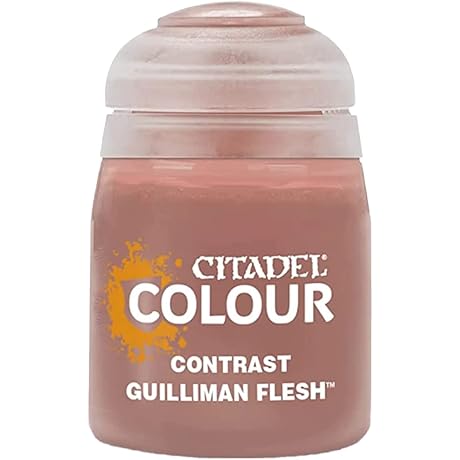
PROS
- Perfect for painting human flesh tones, providing a natural and lifelike finish.
- Effortlessly creates smooth transitions and shading, enhancing the depth and realism of your miniatures.
CONS
- May require multiple coats for optimal opacity.
- Can be somewhat transparent, necessitating careful application.
Citadel Paint Contrast: Guilliman Flesh is not just a paint; it's a statement. With its rich, fleshy hue, it professes a mastery of criticism through the art of miniature painting. This water-based acrylic paint flows effortlessly from brush to canvas, leaving behind a vibrant and natural finish that captures the essence of human flesh tones. Its smooth consistency and exceptional coverage allow for seamless transitions and shading, adding depth and realism to your Warhammer 40k miniatures with minimal effort.
However, like any skilled critic, Guilliman Flesh is not without its complexities. Its somewhat transparent nature demands careful application to achieve the desired opacity. Furthermore, multiple coats may be required to attain a fully saturated finish. But these minor drawbacks pale in comparison to the artistry this paint unlocks. With Guilliman Flesh, you're not just painting flesh—you're crafting a narrative, breathing life into your miniatures with each stroke. So embrace the challenge, wield your brush with precision, and let the power of Guilliman Flesh guide your hand as you paint a masterclass of criticism and creativity.
'Professing Criticism' is an invaluable resource for students, scholars, and anyone interested in the study of literature. It offers a diverse range of perspectives, from established scholars to emerging voices, providing a comprehensive examination of the field. Through its insightful essays, 'Professing Criticism' challenges conventional thinking, encourages critical engagement, and ultimately fosters a deeper understanding of literature.
Frequently Asked Questions
What is the central theme of 'Professing Criticism'?
'Professing Criticism' explores the nature and evolution of literary criticism, examining its various methodologies and theoretical frameworks.
Who is the intended audience for this book?
'Professing Criticism' is primarily intended for students, scholars, and professionals in the field of literature and literary studies.
What are some of the key takeaways from 'Professing Criticism'?
The book emphasizes the importance of critical thinking, close reading, and interdisciplinary approaches in literary analysis.
How does 'Professing Criticism' contribute to the field of literary studies?
It provides a comprehensive overview of the major debates and developments in literary criticism, offering valuable insights for both novice and experienced readers.
What is the significance of 'Professing Criticism' in contemporary literary discourse?
The book remains a foundational text for understanding the complexities of literary criticism and its role in shaping our understanding of literature.
